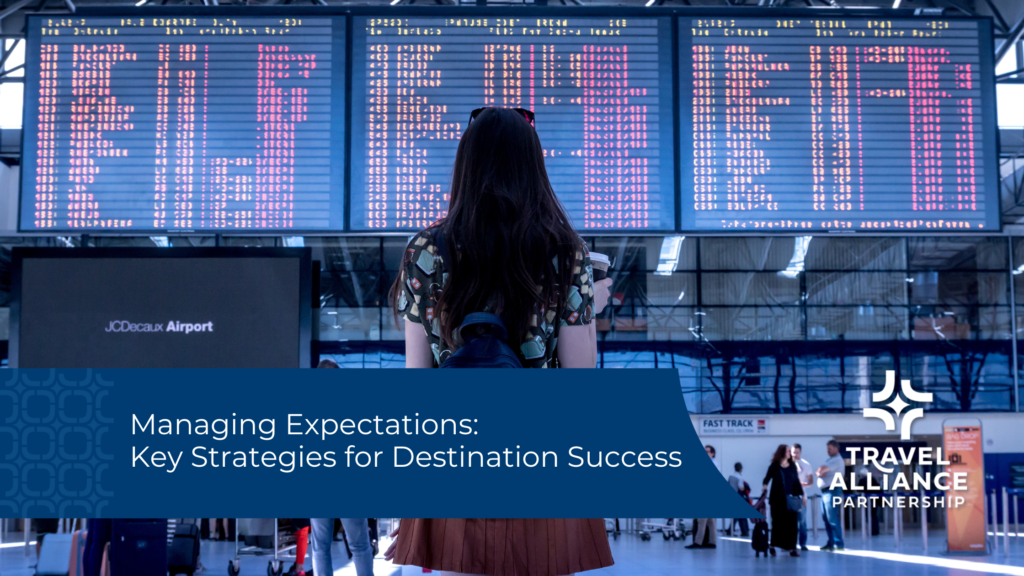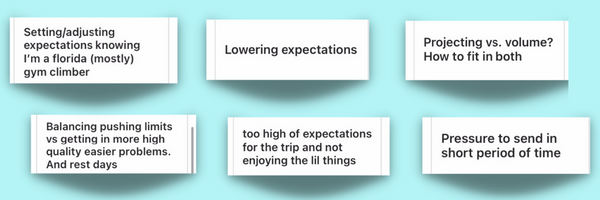

Managing Expectations when visiting overhyped destinations is essential for a successful trip. The allure of renowned landmarks and popular attractions often masks the reality, and unrealistic expectations can lead to frustration. Overhyped destinations, with their enticing visuals and pervasive marketing, often inflate the perceived value of an experience. This can lead to disappointment when the reality fails to match the hype. This article will delve into strategies for managing expectations and ensuring that your visit to an overhyped destination is an enjoyable experience. We will explore methods of planning realistically, identifying alternative activities, and accepting flexibility. We’ll equip you with tools to navigate crowds and disappointment and discover the true essence of the destination.
Understanding the Issue of Overhyped Destinations
The Illusion of the Perfect Vacation
Many popular destinations have become synonymous with the perfect vacation, thanks to extensive advertising and social media campaigns. These destinations are meticulously marketed to showcase idealized images of picturesque landscapes and vibrant experiences. However, what is often overlooked is the inherent challenge of managing expectations in the face of such overwhelming marketing efforts. This article focuses on practical strategies to counteract this pressure and ensure your trip is truly enjoyable. Imagine being overwhelmed by the sheer crowds at a world-renowned landmark, only to realize that the actual experience doesn’t quite measure up to the pre-conceived notions you held.
The Danger of Unrealistic Expectations
Unrealistic expectations can lead to disappointment, anxiety, and stress during your trip. Exaggerated promotional materials often create a sense of obligation to meet a certain level of excitement and expectation, which can be difficult to manage. Research is vital! Often, individuals find their perceptions are vastly different from the reality of a destination. This article explores practical strategies to help alleviate the disconnect between expectation and reality.
Planning for Realistic Expectations
Thorough Research and Information Gathering
Before embarking on your trip, conduct thorough research to get a realistic understanding of the destination. Beyond social media portrayals, seek out reviews from diverse sources, including travel blogs, forums, and even local guides. A more comprehensive approach can give you a more well-rounded perspective of the experience. Look for independent reviews and stories to gain an authentic understanding of the destination and its realities. This research phase is critical for setting expectations that align with your preferences. Don’t rely solely on glossy travel brochures or overly positive online reviews. Look for diverse opinions and experiences.
Setting Achievable Goals
When planning your itinerary, set achievable goals. Don’t overwhelm yourself with countless tourist attractions. Instead, create a balanced schedule that incorporates activities that cater to your interests. This will reduce the pressure to see or do everything in a single trip. Consider prioritizing a smaller selection of destinations that truly interest you. This proactive approach can help prevent disappointment from failing to meet unrealistic expectations.
Discovering Alternative Activities
Exploring Beyond the Main Attractions
Often, the true charm of a destination lies in the hidden gems and local experiences often overlooked by the average tourist. Instead of focusing solely on the most popular attractions, actively seek out alternative activities. Research local markets, cultural events, and historical sites. These hidden gems often offer a more authentic and immersive experience. Seek local guides or recommendations from knowledgeable locals for deeper insights into the culture and history.
Embracing Flexibility and Adaptability
Travel often involves unexpected challenges. Be prepared to embrace flexibility and adaptability to maintain a positive perspective. Unforeseen circumstances can often lead to unexpected opportunities. Be open to detours or last-minute changes in plans. Sometimes, the best experiences are the ones we least expect.
Managing Crowds and Logistics
Understanding Peak Season and Tourist Traffic
Popular destinations frequently experience significant tourist traffic during peak seasons. Recognizing these patterns helps anticipate crowds and plan accordingly. Consider visiting during the off-season for a less crowded experience and more affordable rates. Understand the busiest times of the day at specific attractions and adjust your schedule accordingly.
Navigating Transportation and Booking in Advance
In densely populated tourist areas, transportation can be a major factor in managing your expectations. Research the local transportation options in advance. Book accommodations and transportation in advance to minimize stress and ensure availability.
Prioritizing experiences over quantity
In managing expectations, it is important to note that experiences are more important than the number of locations you can visit in a set time frame. Quality time spent at a few locations is better than rushed experiences of many destinations.
Accepting and Adapting to Unforeseen Circumstances
Acknowledging that Plans Might Change
Sometimes, things don’t go as planned. Be prepared for unexpected delays, closures, or other unforeseen circumstances. Maintaining flexibility and adaptability are key for a stress-free trip. Always have alternative activities in mind.
Utilizing Resources for Immediate Help
In cases of emergencies or unexpected changes, having access to reliable resources, such as local emergency numbers or travel advisories, is important. Understand and plan around any potential risks or disruptions. Also, ensuring you have access to reliable communication options is vital, whether it is your mobile phone or a local SIM card.
Prioritizing your wellbeing
Sometimes, adjusting your plans for flexibility allows you to focus on your wellbeing and health. If things aren’t going according to plan, make the necessary adjustments to ensure your physical and mental health remains in check during your travel.
The Value of a Balanced Perspective
Moving Beyond the Hype
The key is to look beyond the hype and focus on the true essence of a destination. Instead of focusing solely on popular tourist traps, seek out local markets, experiences, and cultural events. This can often lead to more authentic and enriching travel experiences.
Embracing Imperfection and Unforeseen Events
Travel is rarely perfect. Acknowledge the possibility of unforeseen events, like bad weather or unexpected delays. Having a flexible schedule will allow you to adapt to these inevitable circumstances and make the best of your experience.
The Power of Local Experiences
Engage with Local Culture
Experiencing the local culture is often more enriching than rushing through popular tourist sites. Engage with local communities, try local cuisine, attend local events, and learn about local customs and traditions.
Making Connections with Locals
Talking to locals and seeking their recommendations can often lead to hidden gems and more authentic experiences. Local insights can often lead you to better and more realistic experiences, and you can often have a deeper and more meaningful experience.
Frequently Asked Questions
What are some practical tips for managing expectations when visiting overhyped destinations?
Setting realistic expectations is key. Research the location beyond the hype. Read reviews from various sources. Be open to alternative activities if your initial plan doesn’t meet your expectations. Consider visiting off-season or less popular times for a more authentic experience. Also, try to book accommodations and transportation in advance to minimize stress and allow for flexibility.
How can I avoid disappointment when visiting overhyped tourist attractions?
Planning realistically is important. Understand the potential crowds and limitations of popular attractions. Factor in travel time, waiting lines, and potential closures. Consider visiting less-known attractions in the area. Research lesser-known trails or hidden gems to discover alternative activities and attractions.
What are some alternative activities to consider if the primary attraction doesn’t live up to my expectations?
Plan alternative activities in advance. Research local markets, art galleries, or cultural events. Consider taking a cooking class, visiting a local winery, or exploring natural areas. Look into community-based tours, or explore local history to get a more in-depth understanding of the destination beyond the major attractions.
In conclusion, managing expectations when visiting overhyped destinations is crucial for a positive experience. By researching realistically, setting achievable goals, and accepting flexibility, you can transform a potentially disappointing trip into a memorable one. To avoid disappointment and maximize your joy, research thoroughly, set realistic expectations, and be prepared to adapt. Plan alternative activities and be open to unexpected opportunities. Happy travels!